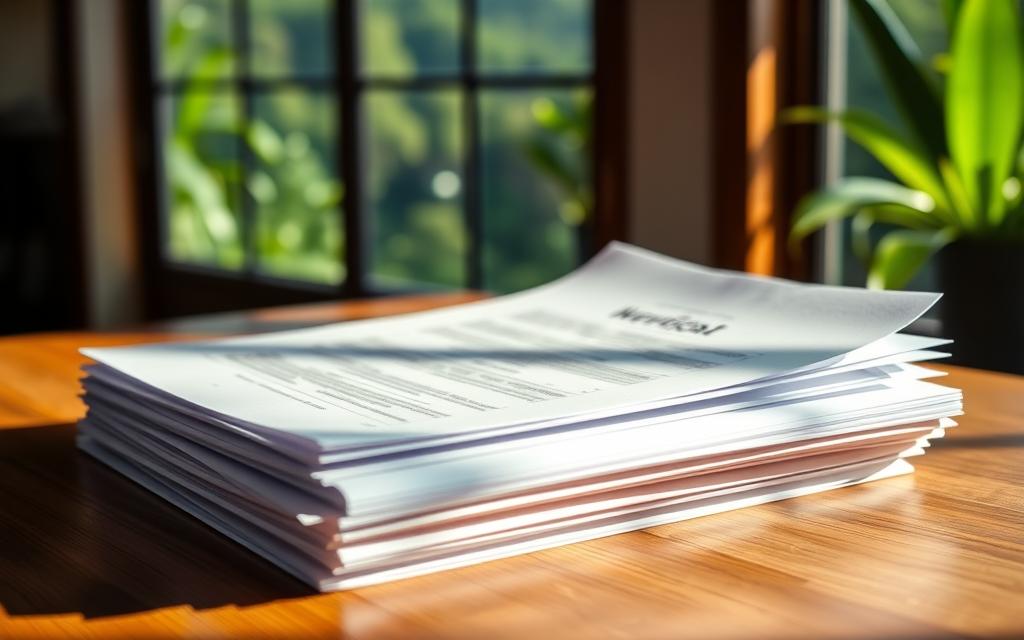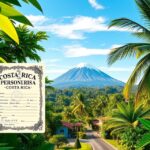Step-by-step process for Costa Rica investor residency explained

Residency in Costa Rica has become a sought-after option for individuals and families looking to enhance their quality of life and explore new opportunities in a vibrant and welcoming environment.
Costa Rica, known for its stunning natural beauty and rich culture, offers a business-friendly landscape, a favorable tax regime, and a safe environment, making it an attractive destination for investors.
Through the Residence by Investment Program, applicants can contribute to the country's economy and become Costa Rican residents within nine to twelve months, with the possibility of acquiring citizenship after seven years.
We will guide you through the comprehensive investment requirements and application process, highlighting the significant benefits and necessary documents required for a smooth transition to Costa Rican residency.
Understanding Costa Rica's Investor Residency Program

Costa Rica's Investor Residency Program offers a unique opportunity for foreign investors to obtain residency in a country known for its natural beauty and stable economy. This program is designed to attract foreign investment, stimulate economic growth, and provide a pathway to residency for those looking to live or invest in Costa Rica.
What is the Investor Residency category?
The Investor Residency category is a specific type of residency visa offered by the Costa Rican government to foreign investors who are willing to invest in the country. This category is part of the country's broader efforts to attract foreign capital and talent, promoting economic development and diversification.
Benefits of obtaining Costa Rican residency
Obtaining Costa Rican residency through the Investor Residency Program comes with numerous benefits. Residents can enjoy a high quality of life, access to a renowned healthcare system, and a favorable tax regime. The program also allows for the inclusion of family members, such as spouses and dependent children, in the residency application.
Some of the key benefits include access to Costa Rica's high-quality healthcare at a lower cost, a stable and peaceful political environment, and a business-friendly climate with supportive policies. Additionally, residents can benefit from no tax on foreign-earned income and the potential to apply for citizenship after maintaining residency for a specified period.
Investment Requirements for Costa Rica Residency
For those considering Costa Rica as their new home, understanding the investment requirements is crucial. The Costa Rican government has established a clear set of investment options that can lead to residency.
Minimum Investment Threshold
The minimum investment threshold varies depending on the type of investment. For instance, investing in real estate requires a minimum of $150,000 USD. In contrast, forestry projects can be initiated with an investment of $100,000 USD.
Qualifying Investment Options
Costa Rica offers several qualifying investment options that satisfy the requirements for investor residency, providing flexibility based on your financial goals and interests. The most popular option is real estate investment, requiring a minimum of $150,000 USD in Costa Rican property, which can include residential homes, commercial properties, or undeveloped land.
Other viable options include investing in shares of an operational Costa Rican corporation and the Costa Rican stock market. Forestry and conservation projects are also increasingly popular, often starting at $100,000 USD, and align with Costa Rica's commitment to environmental sustainability. You can read more about successful investor visa stories on our website: Costa Rica Investor Visa Success Stories.
Each investment option has different risk profiles, potential returns, and management requirements that should be carefully evaluated before making a decision. Working with qualified legal and financial advisors who specialize in Costa Rican investments is highly recommended to ensure compliance with all requirements.
Step-by-step process for Costa Rica investor residency

Navigating the step-by-step process for Costa Rica investor residency can be complex, but understanding each stage is crucial for a successful application. The process involves several critical phases that applicants must navigate to obtain residency.
Initial preparation phase
The initial preparation phase is vital in laying the groundwork for a successful application. During this phase, applicants must ensure they meet the eligibility criteria and understand the investment requirements for Costa Rica's investor residency program. This stage involves gathering preliminary information and making necessary decisions regarding the investment.
Document gathering and authentication
Once the initial preparation is complete, the next step is to gather and authenticate the required documents. This includes personal identification documents, financial and investment proof, and background checks. Ensuring that all documents are properly authenticated and translated as necessary is crucial for a smooth application process.
Application submission
The application submission phase begins once all required documents have been gathered, authenticated, and translated as necessary. Applications must be submitted in person to the Costa Rican Immigration Department (DGME) in San José. Each family member requiring residency must submit a separate application, and applicants must pay the applicable government fees. Fingerprinting at the Ministry of Security is also required for applicants aged 12 and older. Upon submission, applicants receive an official receipt and case number to track their application's status.
The typical processing time for the application is approximately 90 days, although this can vary based on the volume and complexity of applications. After the application is approved, successful applicants must register for social security within 90 days.
Essential Documentation Required

To successfully apply for Costa Rica's investor residency program, it's crucial to understand the essential documentation required. The application process involves submitting several key documents that verify the applicant's identity, financial investment, and background.
Personal identification documents
Applicants must provide valid personal identification documents. This typically includes a passport with sufficient validity, birth certificates, and sometimes marriage certificates if applicable. Ensuring these documents are up-to-date and properly authenticated is vital for a smooth application process.
Financial and investment proof
Proof of financial investment is a critical component of the application. Applicants must demonstrate their investment in Costa Rica, which can be in the form of real estate or other approved investment vehicles. For detailed information on the minimum property value required for investor residency, you can visit this link. The investment must comply with the requirements set by the Costa Rican government, and applicants must provide documentation to prove their investment.
Background checks and certifications
A clean criminal record certificate is mandatory for applicants and their dependents aged 12 and older. This certificate must be issued by the relevant authorities in the country where the applicant has lived for the past three years. For U.S. citizens, an FBI background check is required. All criminal record certificates are valid for six months from their issue date and must be authenticated through apostille or consular legalization. Additionally, applicants may need to undergo fingerprinting at the Ministry of Security in Costa Rica and provide medical certifications confirming they do not pose a public health risk.
Legal Procedures and Timeline
Costa Rica's immigration laws require careful attention to detail and a thorough understanding of the process. After preparing the necessary documents, the application for residence is filed with the Immigration Department. Once the application is approved and requirements are fulfilled, successful applicants must register for social security within 90 days.
Processing Times and Expectations
Individuals are granted a temporary residence permit valid for two years, renewable for another two years. The processing time can vary, and it's essential to understand the expectations and timeline to navigate the system effectively. For more information on how to obtain residency, you can explore if buying real estate in Costa Rica is a viable option for you.
Working with Immigration Authorities
Working effectively with Costa Rica's immigration authorities requires understanding their procedures and maintaining professional communication. Key points to consider include:
- Understanding the role of the Dirección General de Migración y Extranjería (DGME), the primary agency handling residency applications.
- Scheduling appointments well in advance and being punctual.
- Having a Spanish-speaking representative or translator, as most proceedings are in Spanish.
- Maintaining complete and organized documentation, as officials may request additional information.
- Practicing patience and courtesy, as the process can involve bureaucratic complexities.
- Following up appropriately to ensure the application continues moving forward.
Post-Approval Requirements

Maintaining your Costa Rica residency involves complying with several post-approval requirements. After successfully obtaining residency, it's essential to understand these ongoing obligations to ensure your status remains valid.
Social Security Registration
One of the critical post-approval requirements is registering with the Costa Rican Social Security System (CCSS). This involves making regular payments, which are essential for maintaining your residency status. Ensuring your social security payments are up to date is crucial, as significant lapses or arrears can jeopardize your residency.
Consular Registration
While the specific requirements may vary, registering with the relevant consular services may be necessary. This process can help in verifying your identity and residency status. It's advisable to check with the relevant authorities to understand the specific requirements for consular registration.
Maintaining Residency Status
To maintain your residency status, you must not be absent from Costa Rica for more than six consecutive months. Additionally, you are required to visit Costa Rica at least once a year if you don't reside there full-time. It's also crucial to maintain your investment or continue receiving a monthly pension or income, depending on the program you opted for. For more details on the implications of being absent from Costa Rica, you can visit this resource.
Annual renewals of your DIMEX (residency card) are also mandatory, typically requiring proof that you've maintained your qualifying investment. Any changes to your personal information, address, or investment status should be promptly reported to the immigration authorities to avoid any complications.
From Temporary to Permanent Residency

Costa Rica's residency program offers a clear pathway from temporary to permanent residency, providing a stable future for investors. This transition is a significant step for those looking to make Costa Rica their home.
Residency Renewal Process
The residency renewal process is an essential aspect of maintaining your status in Costa Rica. Typically, temporary residency is renewed every two years, provided you continue to meet the initial investment requirements and other conditions. It's crucial to stay informed about the renewal process to avoid any lapses in your residency status. For detailed information on the renewal process, you can visit https://www.jaroscr.com/how-to-get-residency-in-costa-rica/ for guidance.
Path to Permanent Residency
After maintaining temporary residency for three consecutive years, you become eligible to apply for permanent residency. This involves demonstrating ongoing ties to Costa Rica, including your investment and social security payments. While some sources suggest spending 180 days per year in Costa Rica, the official requirement is to visit at least once per year to maintain temporary status. Permanent residency offers greater stability, as it doesn't require regular renewals. After seven years of legal residency, you may apply for Costa Rican citizenship, with citizens of certain countries eligible after just five years.
Alternative Residency Options in Costa Rica
The country provides multiple residency programs tailored to different needs. These programs offer various pathways for individuals to reside in Costa Rica, each with its unique requirements and benefits.
Rentista Program
The Rentista Program is designed for individuals who have a guaranteed income from outside Costa Rica. This program requires applicants to demonstrate a minimum monthly income from a reliable source, ensuring they can support themselves without needing to work in Costa Rica.
Pensionado Program
The Pensionado Program is geared towards retirees who receive a pension from a qualified source. Applicants must show proof of a minimum monthly pension to qualify, making it an attractive option for those looking to enjoy their retirement in Costa Rica.
Marriage to a Costa Rican Citizen
Marrying a Costa Rican citizen provides a straightforward path to residency. After legally marrying, you can apply for residency under the family reunification category. The marriage must be legally recognized in Costa Rica, and authorities scrutinize these applications to prevent fraudulent marriages. Documentation requirements include the marriage certificate, proof of the spouse's Costa Rican citizenship, and standard personal identification documents. Initially, this grants temporary residency for two years, after which you can apply for permanent residency.
Conclusion
Ultimately, Costa Rica's investor residency program provides a gateway to a new chapter in a tropical paradise. We've outlined a comprehensive roadmap for obtaining residency, from initial preparation to post-approval requirements. The benefits of Costa Rican residency, including access to healthcare and a high quality of life, make it a worthwhile investment for many. For those who may not qualify under the investor category, alternative options like the Rentista and Pensionado programs are available. To navigate this process successfully, it's essential to maintain residency status by complying with immigration requirements. For personalized assistance, you can contact Jaros CR at info@jaroscr.com or +(506)7182-8969. You can also visit their website for more information on the required documents for investor residency in Costa Rica: https://www.jaroscr.com/documentos-requeridos-para-la-residencia-de-inversionista-en-costa-rica/.


